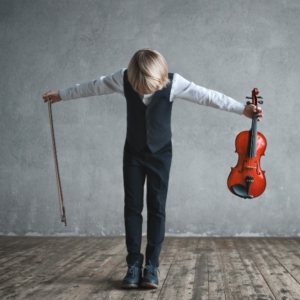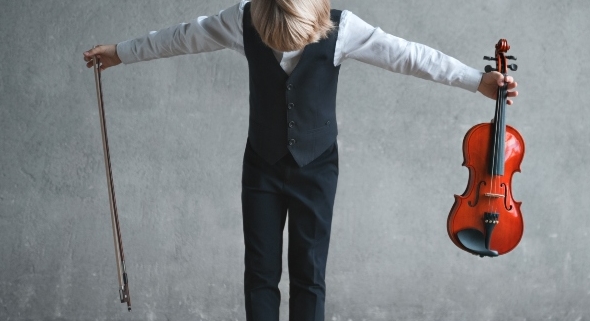5 Reasons Your Child Should Learn a Musical Instrument

If you learned how to play a musical instrument as a child, you likely remember the lessons you learned from acquiring this skill, whether you still play the instrument or not. Even if you didn’t enjoy every music lesson, you probably acquired a mindset that still benefits you in your adult life.
Learning to play an instrument takes time and commitment. These days, people are taking online music lessons more often to stay safe during the pandemic. However, this doesn’t take away from the fact that perfecting your musical skills will take considerable patience and effort. These are likely just a few of the reasons you may want your children to learn how to play an instrument. Here are five benefits of having a young musician in your household.
Enhanced Memory
Learning to play an instrument teaches children how to develop their creativity. This skill also makes it easier for kids to store and retrieve memories. When your child is able to remember more, he/she will be able to think in an organized fashion. This can help with retaining information for school and/or life skills.
Increased Confidence
Learning an instrument can increase your child’s confidence. When children reach milestones while enhancing their musical ability, they are more likely to have a stronger sense of self and won’t be as afraid to take on new challenges in other areas of life. Perfecting a musical skill can also encourage your child to be resistant when working on difficult or challenging projects.
Improves Coordination
When a child learns how to play an instrument, this prompts his/her brain to work quickly. The child will have to read music while interpreting what the notes mean and producing these notes on their instrument. This improves hand/eye coordination that can benefit your child when it comes to enhancing fine motor skills and playing sports.
Improves Academic Skills
Even though music is a creative art, it’s actually one big math problem. Your child will have to understand mathematics in various perspectives to successfully play his/her instrument. Music also requires the use of problem-solving skills and reading comprehension. Children will learn what certain words symbols mean and how to interpret these phrases and images to create beautiful music. This improves reading and comprehension when your little one is reading music, books or homework assignments. Music can also be a cultural experience. When your child learns to play certain songs, he/she may be interested in learning about the song’s origins and what certain words in the song mean. When your child finds a song that he/she likes, this could prompt them to want to learn more about the artist who composed the song and the composer’s cultural background. Once you notice that your child is improving when playing his/her instrument, you may also notice that he/she starts doing better in school as well.
Learning Responsibility
When you provide music lessons for your child, you’re also teaching him/her how to be responsible. Most instruments require maintenance of some kind. Your child may be required to clean his/her instrument regularly or oil it to get the best sound. Encouraging your son or daughter to keep their instrument in the best condition instills a sense of responsibility. Making sure your child properly cares for his/her instrument can also foster a sense of pride in being a musician and this sense of responsibility could become evident when your child completes chores, schedules time for homework, or practices his/her athletic skills as part of a sports team.
Final Thoughts
The ability to play a musical instrument is a skill that your child can use for years to come. Whether your son or daughter decides to pursue a career in the creative arts in the future or uses his/her listening skills, problem-solving abilities, and sense of responsibility to achieve success in another career field, they’ll have a reliable set of skills that come from learning music.
To find the musical instrument that best suits your child, ask your little one what type of music he/she likes best. When your child sings his/her favorite songs, pay attention to the sounds your little one is most attracted to. This will help you find an instrument and instructor that is best suited to develop your son or daughter’s creativity.
By Samantha Higgins

I’m glad you talked about musical instruments and how they improve a kid’s coordination skills. Recently, my sister mentioned she wants her daughter to join an extracurricular activity. I believe music should be a part of any kid’s life, so I’ll be sure to suggest it to my sister. Thanks for the advice on music and how playing an instrument comes with many benefits.
I love that you talked about how kids benefit from learning how to play an instrument. Recently, I visited my brother, and I heard his daughter saying she wants a guitar. I believe my niece’s birthday is coming soon, and a guitar would make an awesome gift! Thanks for the information on musical instruments and their positive effects on children.
I loved how you mentioned that you can increase your child’s confidence by having them play an instrument! My husband and I have been thinking about having our son take guitar lessons since he has talked about how he wants to play one, and we wanted to know the benefits of having him play an instrument. We’ll have to look into finding a place where we can sign him up for music lessons as soon as possible!